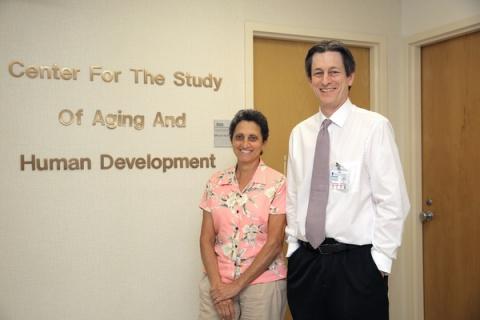
Duke Department of Medicine and School of Medicine investigators, under the leadership of Kenneth Schmader, MD, Professor of Medicine (Geriatrics), and Miriam Morey, PhD, Professor of Medicine (Geriatrics), successfully competed for a 5-year renewal of the highly prestigious National Institute on Aging P30, $6.5 million, Claude D. Pepper Older Americans Independence Center (Duke Pepper Center), based in the Duke Center for the Study of Aging and Human Development.
The overall goal of the Duke Pepper Center is to support research and training that improves the independence of older Americans by focusing on the Center’s theme to understand and optimize reserve and resilience. Over the past 5 years, Center investigators have made key scientific discoveries regarding physical resilience in older adults and developed talented new investigators in this field. This renewal will build upon this foundation to achieve further major advances in both the understanding of the underlying mechanisms as well as the creation of new interventions for optimizing reserve and resilience across the lifespan
“Through our groundbreaking achievements in resilience science, the Duke OAIC has become a national leader in this field.”
“Through our groundbreaking achievements in resilience science, the Duke OAIC has become a national leader in this field,” Dr. Schmader said.
The specific aims of the Duke Pepper Center are:
- To advance our knowledge of measures, mechanisms and analyses of reserve and resilience in older adults through an integrated research program
- To develop and evaluate interventions that optimize reserve and resilience in older adults
- To identify and develop the next generation of researchers who will become leaders in aging and geriatrics research related to the Duke OAIC focus
- To support pilot studies needed to design successful, more definitive research studies related to the Duke OAIC focus
The Duke Pepper Center will support collaborative research with investigators whose funded work is relevant to the Center theme. New investigators and pilot studies will be supported as well.